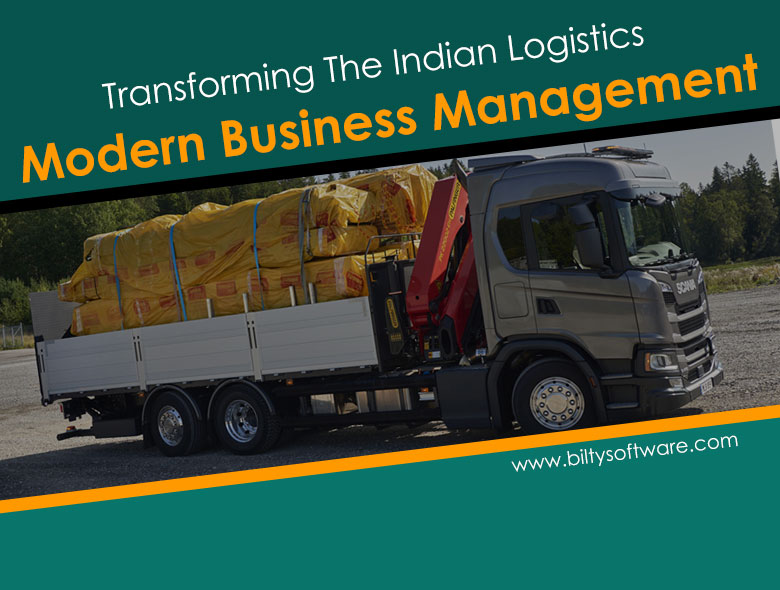Logistics plays a vital role in the development and growth of any country. Technology thy name is changing, and changing technology is widely accepted worldwide, and India is no different in taking modern business management system. Various industries are connected, with technology and logistics being one of them.
Technology has brought a pattern change in the Indian logistics and transportation system. The Modern business management system have transformed the flow of goods from manufacturers, retailers, or wholesalers until they reach the end-users.
The Indian logistics and transportation industry has been greatly impacted by innovation and changes in communication technology, information technology, and the transformation of technology from manual to automatic.
(a) Strategic Planning
Modern business management system have changed how logistics owners make strategic plans. Strategic plans are essential for business as it creates a road map for the industry to follow. With the advent of modern system, the logistics owners can create accurate strategic planning for they have with them various real-time data at their disposal.
The logistics owners now want to have accurate data and other essential information when they make strategic plans for their logistics business. They do not believe in beating around the bush; instead, they want to hit the bull’s eye with real-time and accurate information.
The trial and error policies followed earlier by the logistics owners have changed, and credit for this goes to the modern business management system.
(b) Customer Relationship
Today, the perception of business entities toward their customer has changed with the advent of the business management system. The business owners ensure that all the issues of their customers are met on time.
They are more on managing friendly relationships with their potential and current customers. Logistics owners want to stay connected to customers, streamline processes, enhance their profit figures, track communication and nurture warm relationships.
CRM software helps the logistics owners manage, track and organize customer interactions and touchpoints. Business owners aim to centralize, optimize and streamline the communication with their customers in the customer-centric era.
(c) Mission and Vision
The advent of modern business management has changed the mission and vision perspective of the logistics owner. Earlier, the logistics business owners only had to ensure goods reached the end-users on time. Today, this perception has changed, and the transport owners aim to expand their business operations beyond the country’s geographical boundaries.
They strive for their vision of global expansion and plan their moves accordingly. The logistics owners also aim to build and maximize sustainable competitive advantages using a modern business management system.
(d) Cloud Collaboration
The advanced management has motivated logistics service providers to ensure seamless operations of their business. Today, transport business owners make decisions based on data analytics, thanks to cloud computing for logistics management. With the help of cloud collaboration, they quickly get access to real-time data to make informed business decisions.
The logistics business owners can quickly assess the company’s ability to perform and get quicker and better control of every aspect. The logistics user aims to automate several processes and operations, eventually minimizing human errors and ensuring seamless logistics operations.
(e) Electronic Invoicing
The service provider aim to make the generation of invoice generation easy using modern business management. The use of electronic invoices allows them to save costs and time. E-invoicing is a paperless solution, and it goes a long way in supporting the sustainability targets of logistics companies, contributing to a reduction in carbon footprint.
Furthermore, e-invoice also improves accuracy and process compliance. The invoice automation helps the companies reduce the number of errors as the manual work is reduced to a minimum. Automating the invoice process helps in greater transparency and visibility of payments, allowing better control and surveillance of possible frauds.
Bilty Software PVT LTD
The Transport management system helps the logistics managers to streamline their business operations effectively. The system allows the logistics manager to plan and execute the shipment processes effectively and have visibility over them.
Sangita Kamboj is a content writer who can curate articles, blogs and press releases for various industry verticals, including logistics and transportation business, finance, education, travel and many more. Each topic is well researched from multiple sources and is well-written with a focus on detail.

